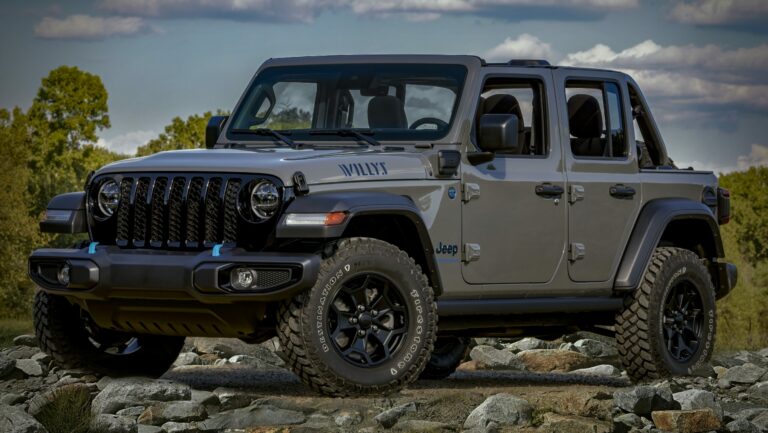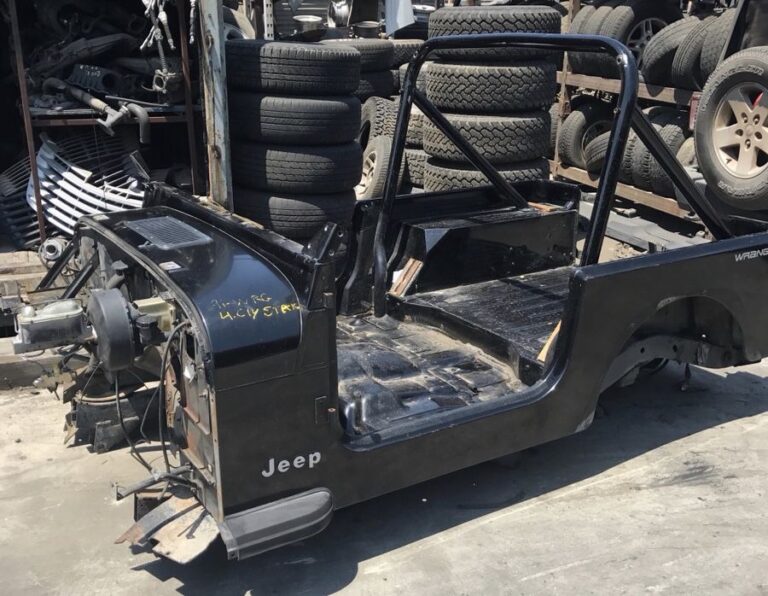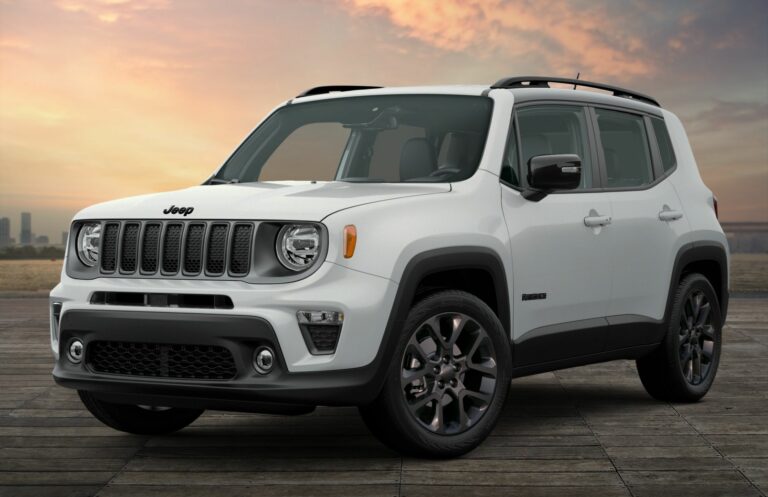2000 Jeep Grand Cherokee Engines For Sale: A Comprehensive Guide to Revitalizing Your Ride
2000 Jeep Grand Cherokee Engines For Sale: A Comprehensive Guide to Revitalizing Your Ride jeeps.truckstrend.com
The 2000 Jeep Grand Cherokee, part of the WJ generation, holds a special place in the hearts of many automotive enthusiasts. Renowned for its robust off-road capability, comfortable interior, and distinctive styling, it remains a popular choice even decades later. However, like any vehicle approaching its silver anniversary, the original engine may eventually reach the end of its reliable service life. When faced with a failing engine, the question often arises: scrap the beloved Jeep, or invest in a replacement engine? For many, the answer leans heavily towards the latter, making the search for "2000 Jeep Grand Cherokee Engines For Sale" a crucial step in keeping these iconic SUVs on the road.
This comprehensive guide is designed to equip you with all the knowledge needed to navigate the market for a replacement engine, ensuring you make an informed decision that breathes new life into your 2000 Grand Cherokee.
2000 Jeep Grand Cherokee Engines For Sale: A Comprehensive Guide to Revitalizing Your Ride
Understanding the 2000 Jeep Grand Cherokee Engine Options
The 2000 Jeep Grand Cherokee offered two primary engine choices, each with its own characteristics and fan base:
- 4.0L PowerTech I6 (Inline-Six): This legendary engine is a cornerstone of Jeep’s history, known for its incredible durability, straightforward design, and ample low-end torque. It’s a workhorse, often lauded for its ability to rack up hundreds of thousands of miles.
- Characteristics: Simple, robust, reliable (with proper maintenance), good for off-roading due to torque.
- Common Issues (after extended use): Cracked cylinder heads (especially 0331 casting), exhaust manifold cracks, oil leaks, and general wear and tear.
- 4.7L PowerTech V8: Introduced with the WJ generation, this overhead cam V8 offered significantly more horsepower and torque than the 4.0L, providing a more refined and powerful driving experience, particularly for highway cruising and towing.
- Characteristics: Higher horsepower, smoother operation, better acceleration, higher towing capacity.
- Common Issues (after extended use): Oil sludge (due to extended oil change intervals or incorrect oil type), dropped valve seats, lifter noise, and overheating issues if cooling system neglected.


Identifying which engine your Grand Cherokee has (or needs) is the first critical step. This can typically be found on the vehicle’s original window sticker, under the hood, or by decoding the VIN.
Why Consider a Replacement Engine for Your 2000 Grand Cherokee?
Opting for a replacement engine often makes more economic and emotional sense than buying a new vehicle, especially for a well-maintained 2000 Grand Cherokee. Here’s why:
- Cost-Effectiveness: The cost of a quality used or remanufactured engine, plus installation, is typically far less than purchasing a new or even a newer used vehicle.
- Known Vehicle History: You know your Jeep’s history, its quirks, and its maintenance record. Investing in a new engine allows you to keep a vehicle you’re familiar and comfortable with.
- Sentimental Value: For many, their Grand Cherokee is more than just transportation; it’s a part of their lifestyle, a reliable companion for adventures.
- Extending Vehicle Life: A new engine can significantly extend the overall lifespan of your vehicle, allowing you to enjoy it for many more years.
- Environmental Impact: Reusing a vehicle’s chassis and components by replacing only the engine is a more environmentally friendly option than purchasing a brand-new car.

Where to Find 2000 Jeep Grand Cherokee Engines For Sale
The market for replacement engines is diverse, offering several avenues to explore:
- Salvage Yards & Auto Recyclers:
- Pros: Often the most affordable option. You can sometimes inspect the engine in person.
- Cons: Engines are "as-is," with limited or no warranty. Condition can vary wildly.
- Tip: Look for yards that test their engines or offer a short-term guarantee. Ask for mileage and the donor vehicle’s VIN.
- Remanufactured Engine Suppliers:
- Pros: Engines are completely rebuilt to factory specifications (or better) with new or reconditioned components. Typically come with a substantial warranty (e.g., 3 years/unlimited miles). Higher reliability.
- Cons: More expensive than used engines.
- Tip: Research the supplier’s reputation, warranty terms, and what’s included (e.g., long block, complete engine).
- Online Marketplaces & Dedicated Auto Parts Sites:
- Pros: Wide selection, competitive pricing, ability to compare options easily. Examples include eBay, Craigslist, LKQ Online, Car-Part.com (a search engine for salvage yards), and specific Jeep parts forums.
- Cons: Can be difficult to verify seller credibility. Shipping costs can be high. Risk of misrepresentation.
- Tip: Use secure payment methods, check seller reviews, ask for detailed photos/videos, and ensure clear communication about warranty and shipping.
- Specialty Jeep Parts Dealers:
- Pros: Knowledgeable staff, often source quality used or remanufactured engines, may offer installation services or advice.
- Cons: Potentially higher prices than direct salvage yards.
- Tip: Good for those seeking expert guidance and peace of mind.
Key Considerations When Buying a Replacement Engine
Purchasing an engine is a significant investment. Here’s what to keep in mind:
- Condition: Used vs. Remanufactured vs. New (Rare):
- Used: Cheapest, highest risk. Best for budget projects or if you’re comfortable with potential repairs.
- Remanufactured: Best balance of cost and reliability. Ideal for long-term solutions.
- New: Extremely rare and prohibitively expensive for a 2000 model year.
- Mileage (for Used Engines): Lower mileage is generally better, but condition and maintenance history are more important than just the number. An engine with 150k miles that was well-maintained might be better than one with 80k that was neglected.
- Warranty: This is paramount.
- Used: Expect 30-90 days, if any. Covers catastrophic failure, not wear items.
- Remanufactured: Expect 1-5 years, often unlimited mileage. Look for comprehensive coverage on parts and labor. Understand the claims process.
- Compatibility: Ensure the engine is an exact match for your vehicle’s year, model, and original engine type (4.0L or 4.7L). Verify engine codes, sensor locations, and transmission bolt patterns. VIN verification is crucial.
- Completeness:
- Long Block: Includes block, crankshaft, connecting rods, pistons, cylinder head(s), camshaft(s), and valve train. Most common for remanufactured engines.
- Short Block: Block, crank, rods, pistons. Requires transferring your cylinder head(s).
- Complete Engine (Turn-Key): Includes all accessories like intake manifold, exhaust manifolds, alternator, power steering pump, AC compressor, etc. Often found in used engines from salvage.
- Shipping Costs: Engines are heavy. Freight shipping can add hundreds of dollars to the total cost. Factor this in early.
- Installation: Decide if you’ll tackle the swap yourself (requires significant mechanical skill and tools) or if you’ll hire a professional mechanic. Get quotes for labor.
Tips for a Successful Engine Purchase
- Do Your Homework: Research reputable sellers. Read reviews. Check BBB ratings if applicable.
- Ask Detailed Questions: Don’t be afraid to ask about the engine’s history, specific components, testing procedures, and warranty details.
- Request Photos/Videos: For used engines, ask for clear, high-resolution photos from multiple angles, including the oil pan, valve cover, and cylinder head casting numbers.
- Verify VIN: If buying a used engine, try to get the VIN of the donor vehicle to cross-reference with vehicle history reports (CarFax, AutoCheck) if possible.
- Get Everything in Writing: Warranty terms, return policy, and what’s included in the sale should be clearly documented.
- Factor in Ancillary Costs: Beyond the engine itself, you’ll need new gaskets, seals, fluids (oil, coolant), spark plugs, and potentially a new water pump, thermostat, and belts.
- Consider a Pre-Purchase Inspection (If Local): If buying from a local salvage yard, have a mechanic inspect the engine before purchase if feasible.
- Understand Core Charges: Many sellers, especially remanufacturers, require a "core charge" which is refunded when you return your old engine.
Potential Challenges and Solutions
- Finding the Exact Match: Some 2000 Grand Cherokees had specific emissions requirements (e.g., California emissions) or minor variations. Always double-check part numbers and VIN compatibility.
- Shipping Damage: Inspect the engine thoroughly upon delivery before signing for it. Document any damage with photos and refuse delivery if severe.
- Warranty Claims: Understand the process. Keep all receipts and documentation. Be prepared to provide proof of professional installation and proper maintenance if a claim arises.
- Installation Complexities: Engine swaps are not for the faint of heart. If you’re not experienced, professional installation is highly recommended to avoid costly mistakes.
Estimated Price Table for 2000 Jeep Grand Cherokee Engines For Sale
Please note: Prices are highly variable based on condition, mileage, seller, time of year, and market demand. These are estimated ranges for a general idea. Shipping costs are not included and can add $200-$600+.
| Engine Type | Condition | Estimated Price Range (USD) | Typical Warranty | Notes |
|---|---|---|---|---|
| 4.0L I6 | Used (High Miles) | $600 – $1,200 | 30-90 Days | "As-is" from salvage. Varies widely. |
| 4.0L I6 | Used (Low Miles) | $1,200 – $2,000 | 90 Days – 6 Months | Harder to find, often from crashed vehicles. |
| 4.0L I6 | Remanufactured | $2,000 – $3,500 | 1 Year – 5 Years / Unlimited Miles | Best value for reliability and longevity. Often long block. |
| 4.7L V8 | Used (High Miles) | $800 – $1,500 | 30-90 Days | Higher risk for sludge/valve issues if history unknown. |
| 4.7L V8 | Used (Low Miles) | $1,500 – $2,500 | 90 Days – 6 Months | Crucial to verify previous maintenance. |
| 4.7L V8 | Remanufactured | $2,500 – $4,500 | 1 Year – 5 Years / Unlimited Miles | Addresses common V8 issues. Highly recommended for peace of mind. |
- Prices typically refer to long block configurations. Complete engines (with accessories) might be higher, especially if used.
- Always confirm what is included with the engine (e.g., intake, exhaust manifolds, sensors, etc.).
- A core charge (typically $200-$500) may apply and is refunded upon return of your old engine.
Frequently Asked Questions (FAQ)
Q: What’s the difference between a long block and a short block?
A: A short block includes the engine block, crankshaft, connecting rods, and pistons. You’d need to transfer your cylinder head(s) and all other components. A long block is more complete, including the short block plus the cylinder head(s), camshaft(s), and valve train. Most remanufactured engines are sold as long blocks.
Q: How do I know which engine my 2000 Grand Cherokee has?
A: Check your vehicle’s VIN (Vehicle Identification Number). The 8th digit of the VIN typically indicates the engine type. For 2000 Grand Cherokees:
- "S" usually denotes the 4.0L I6.
- "N" usually denotes the 4.7L V8.
You can also look under the hood; the 4.0L is an inline-six, while the 4.7L is a V8.
Q: Is it worth replacing the engine, or should I just buy a new car?
A: This depends on your vehicle’s overall condition, your budget, and sentimental value. If the rest of your Grand Cherokee (transmission, body, interior, frame) is in good shape, replacing the engine is often a cost-effective way to get many more years out of it. If the vehicle has extensive rust, major transmission issues, or other significant problems, a new car might be a better option.
Q: What should I look for in an engine warranty?
A: For remanufactured engines, look for a warranty that covers both parts and labor. Understand the duration (e.g., 3 years/unlimited miles), what it covers (catastrophic failure vs. wear items), and the claims process. For used engines, a 30-90 day warranty is common, often limited to replacement or refund of the engine itself, not labor.
Q: Can I install the engine myself?
A: An engine swap is a complex mechanical task requiring specialized tools (engine hoist, stand, etc.), significant mechanical knowledge, and adherence to proper procedures. If you lack extensive automotive experience, it’s highly recommended to have a professional mechanic perform the installation. Improper installation can void warranties and lead to further damage.
Conclusion
The 2000 Jeep Grand Cherokee is a testament to rugged design and enduring capability. When its original engine eventually gives out, the prospect of finding a replacement can seem daunting. However, with careful research, a clear understanding of your options, and a focus on reputable sellers, securing a quality "2000 Jeep Grand Cherokee Engine For Sale" is an entirely achievable goal. By investing in a new heart for your beloved WJ, you’re not just replacing a part; you’re preserving a classic, ensuring it continues to conquer trails and cruise highways for many years to come.






